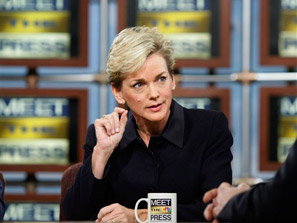Officials Seek More Than Spin From Walker About "Troublemakers" Statements
Submitted by Anne Landman on
Embattled Wisconsin Governor Scott Walker's confession that he talked with political allies about potentially hiring "troublemakers" to disrupt the peaceful protests in Madison have drawn more questions from lawyers, police, Wisconsin state legislators and the mayor of Madison -- and a lot of spin by Walker. Through a spokesman, Walker has said that throughout the prank call he accepted with a fake "David Koch" that he "maintained his appreciation for and commitment to civil discourse." He continues to insist that the budget repair bill is about the budget, and that people other than him suggested using troublemakers to disrupt the crowd. Walker also maintains that he says the same thing in private as he does in public. But despite these responses, questions continue. Madison Mayor Dave Cieslewicz sent a letter to Walker asking him who made the suggestion to disrupt the protests, what was the nature of the suggestion, and asking what was Walker's immediate response to the proposal. The mayor also asked Walker why he rejected the "troublemakers" proposal due to political considerations rather than on legal and moral grounds. Walker has so far failed to publicly answer the growing number of questions about his statements, and public interest groups have been forced to file Freedom of Information Act requests to obtain the details of Walker's conversations about stirring up violence.

 Michigan Governor
Michigan Governor  Despite Governor
Despite Governor  As former President
As former President